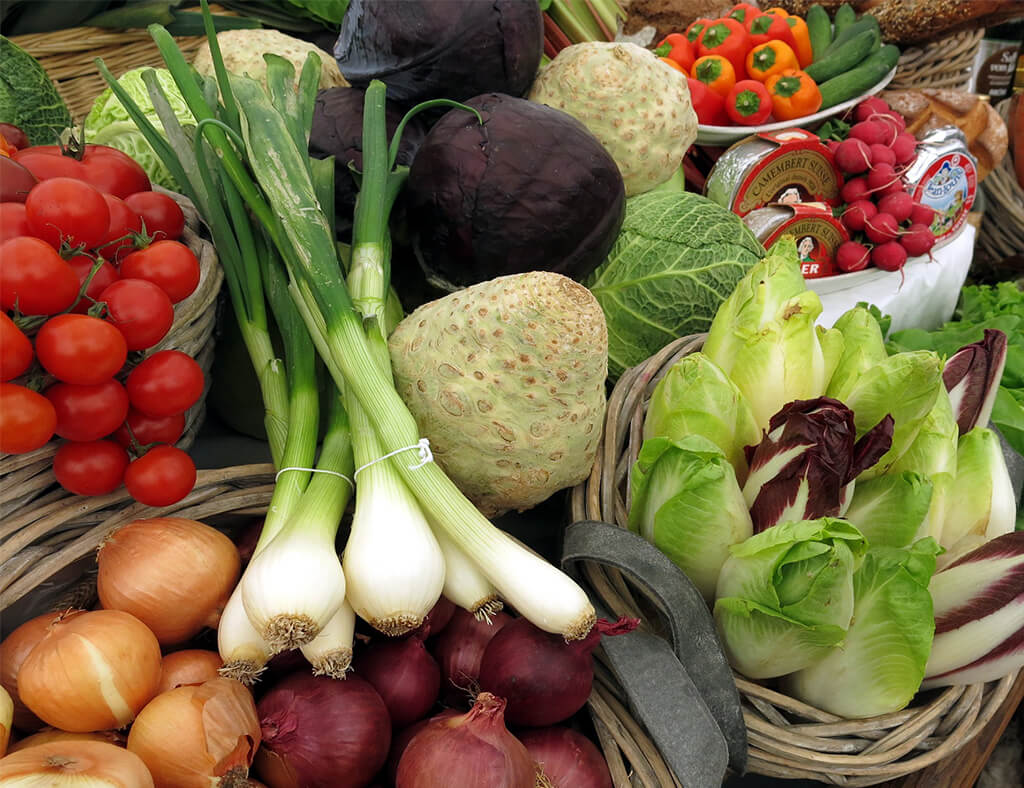
The terms “vegetarian” and “vegan” are heard often in day to day conversations regarding food, diets, and nutrition. With a variety of vegetarian diets in the market, what does it mean to be vegetarian and how exactly does it differ from being a vegan? Are they mutually exclusive to each other? In this post, we explore the similarities and differences as well as the health benefits and risks for both vegan and vegetarian diets.
Vegetarianism
A vegetarian as described by the Vegetarian Society is “someone who lives on a diet of grains, pulses, legumes, nuts, seeds, vegetables, fruits, fungi, algae, yeast and/or some other non-animal based foods (e.g. salt) with, or without dairy products, honey and/or eggs.” Simply put, vegetarians do not eat any animal products. There are many vegetarian diets that are subject to interpretation. Although some vegetarians exclude milk and eggs from their diet, there are others that keep them in. Here’s a list of the most common types of vegetarian diets:
Lacto-ovo (or ovo-lacto) vegetarians, from the Latin words for milk and egg, are the most common type of vegetarian. As the name suggests, people who follow this diet eat dairy products and eggs but avoid meat, poultry, and seafood.
Lacto-vegetarians eat dairy products but no eggs, meat, poultry or seafood.
Ovo-vegetarians vegetarians eat eggs but no dairy products, meat, poultry or seafood.
Pesco-vegetarians eat fish and other seafood but no poultry or meat.

Veganism
The Vegan Society defines Veganism as “a way of living which seeks to exclude, as far as is possible and practicable, all forms of exploitation of, and cruelty to, animals for food, clothing or any other purpose.” A vegan avoids animal foods (e.g. red meat, poultry, seafood, etc.) and food products such as dairy, eggs, and honey. Vegans who choose this diet for moral reasons tend to be passionate about animal welfare, so many avoid wearing leather and suede because they are made from animal skins. Essentially, this means no animal or animal-based products whatsoever as part of a vegan’s way of life. The vegan diet is the strictest and most ardent form of a vegetarian diet compared to the other diets.
Benefits
Both vegetarian and vegan diets have health benefits such as lower cholesterol levels, lower body mass (BMI) and greatly reduced risks of different types of cancer. The American Dietetic Association says the “features of a vegetarian diet may reduce the risk of chronic disease include lower intakes of saturated fat and cholesterol and higher intakes of fruits, vegetables, whole grains, nuts, soy products, fiber, and phytochemicals.”
Drawbacks
Unfortunately, a diet that excludes all animal products does have some nutritional drawbacks.
Calcium, omega-3 fatty acids, vitamin B-12, and folate—all of which are present in meat and dairy—as key nutrients a vegan/vegetarian diet can lack. Over time, inadequate consumption of these vital nutrients can result in a host of problems, including loss of bone and muscle mass.
Alternative sources of Vitamin B-12 can be found in fortified foods and vitamin supplements. Breakfast cereals, plenty of sunshine and fortified soy milk help provide sufficient amounts of Vitamin D. Vegetarians can get calcium from soybean products, vegetable greens, tofu and dried figs. Protein includes seeds, nuts, cereals, milk, and eggs.

Bottom Line
There’s a variety of reasons people choose to be a vegan or vegetarian. Some embrace vegan/vegetarianism for moral or religious reasons, while others choose this lifestyle due to their personal concerns about food safety and the environment.
At Furlani Foods, we firmly believe that consumers should be well informed about the quality of food options that are available to them. As part of our ongoing commitment to provide healthier food options and alternatives, we are proud to confirm that all Furlani products are suitable for a lacto-vegetarian diet.
And there you have it – what it means to be a vegan or vegetarian in a nutshell. Choosing the most suitable diet has never been easier thanks to the facts and wealth of information out there. Ultimately, the call is yours to make.